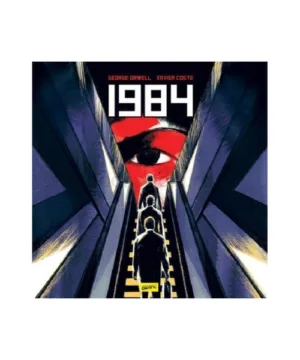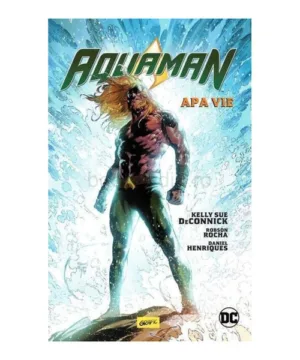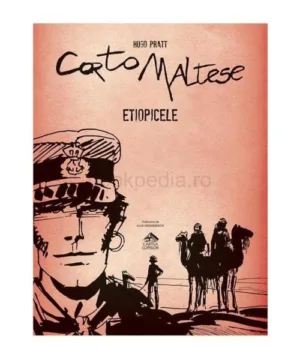Trianon, Trianon! A Century of Political Revisionist Mythology
90,00 lei
| Publisher | Scoala Ardeleana |
|---|---|
| Year | 2021 |
| Pages | 386 |
Informații suplimentare
| General | |
|---|---|
| Publisher | Scoala Ardeleana |
| Year | 2021 |
| Others | |
| Identification | |
| ISBN-13 | 9786067977042 |
| Format | |
| Dimensions | 160x230 |
| Pages | 386 |
Descriere
„There is still enough space on the globe for everyone to live in peace. We are the largest and the most solid people in this Southeast Europe for us not to look towards the future with confidence. And in order to lighten the road ahead, we do not need to mystify the past. On the contrary. Isn’t it wiser to reconcile with history’s verdict and get along with each other?” (David Prodan, Transylvania and Again Transylvania, 1992)
* * *
Mankind witnessed in the last decades not only the complexity of the world but also the particularly high speed in which the social events unfold. This is the reason why every person may feel the need to decode the evolution paths as quick and extensive as possible. The international crises that tend to succeed in an increasing short time frame are relativizing the mathematical models of forecasting. Historical contemporary phenomena and processes are being inquired in order to find explanations at actual facts and serial reconstructions to indicate the near future, at least.
The initiative to publish this volume is a response to the interest shown by scholars and by public opinion, with regard to the debating in the mass media of the Trianon Treaty (1920) topic. During the previous years, many authors wrote about the Centenary of the Outbreak of the First World War (1914) and the end of the conflict (1918).
A century from the completion of the Great Union of Romania (1918) was also celebrated. The Trianon topic has been aggressively brought into discussion, challenging the historical moments under consideration and puzzling the news media consumers, most particularly those of the social media. And the environment for receiving such opinions has been largely polluted by the intensification of the populist, nationalist, xenophobic politicized discourse having proliferated in the European public space and especially in the Central South East European area. While professional historians have addressed these issues in small conferences or specialized publications, the so-called ”journalistic history” has only emphasized aspects that newsrooms or broadcasting circles considered to correspond to the ”market demand”. Hence the need to come to the general public with historiographical or social sciences opinions that provide readers with support for the rational thinking, too.
This volume presents the opinions of several experts in the fields of historiography, sociology, law, political science and international relations, etc., in order to allow an interdisciplinary analysis combining the historical facts approach and elements of knowledge and understanding of contemporary phenomena. All the above have been intentionally sensitized by the undisguised politicization proposed by some parties, cultural groups, public figures in search of electoral glory and power built on the skeletons of the past. On the other hand, we wished to focus on the fact that the peoples of this part of Europe should equally relate, in a constructive way, to the local, continental and global context. Only weak political and state leaders always see a danger in everything around them and seek to save themselves, by means of their attachment to certain one-way conjuncture structures of power, sacrificing the opportunities for long-standing partnerships that could be achieved through sincere and systematic cooperation.
More than two decades ago I published a volume (Pulsul istoriei în Europa Centrală/The Pulse of History in Central Europe, 1998) in which I tried to explain why is history so important for defining the identity of the nations of Central Europe. The main message of that volume was inspired by Robert D. Kaplan's famous book, Balkan Ghosts (1993).
During the first decade after 1989, Europe and the world were horrified by the ethnic and religious violence in the Balkans, and Kaplan warned regional and European leaders not to succumb to historical political ghosts such as those that troubled the South-East of the continent. At that time, I drew the attention of the leaders of Romania, as well as those of Central Europe to what Robert D. Kaplan said, namely that they also should avoid freeing the Central European ”specters ”, because some politicians were tempted in this very area to bring the phantoms of past conflicts to the forefront of social life. Once the momentum of the post-communist leaders of the Central European states to join NATO and the EU has subsided, the recourse to the ”specters ” of history has returned, and what was hoped to become the European way of life in the Western sense is today presented to us clearly pointing to a path inspired by ancient Eastern habits. On this occasion, the political approach of some Central European leaders proves to be similar to those who released the ”ghosts ” from the Balkans at the end of the twentieth century; these leaders show unwillingness to learn both the lessons of the two world wars that have bled the last century and the suffering produced by fascism and bolshevism to the nations of this region.
The signing of the Trianon Treaty (1920) represented for Romania the international recognition of post-war borders, largely perceived as a consequence of the application of the principle of national self-determination, considered as being the main pillar of the Peace Doctrine at the end of World War I. But a peace treaty should also contain other arrangements between the signatory parties, intended to place future developments on a legal, political, economic, financial, social, cultural, etc., basis. The state of peace had only been initiated by the signing of the Peace Treaty, while the ”dynamics of peace” – as Nicolae Titulescu called it – depended on how the parties were to adopt a constructive or destructive attitude. This is an obvious conclusion about how the signatory parties related to the system of the Versailles Treaties (1919-1920), including the Trianon Treaty.
This volume includes several studies that present the history of the idea and the construction of the national modern state in Central Europe, as well as the European and Central South-East European contexts at the end of the First World War. As this contextuality was dominated by systemic events, I adopted an approach equally based on formal analytical methods in order to circumscribe in a logical manner the decisions of the Paris Peace Conference (1919-1920). A legal reading of the Trianon Treaty and of the principle of nationalities, as it operated immediately after the end of the conflagration, is followed by several studies showing a series of cultural, political and institutional state consequences of the elaboration and application of the same treaty. A consistent chapter is devoted to the historical-historiographical analysis of political myths imagined in Hungary on account of the Trianon Treaty, as the basis for supporting a revisionist and revengeful policy that has extended its manifestations to the present days. Two analyzes belong to sociologists who evaluate the political discourse and attitude of contemporary politicians, movements, groups,; there are actually political groups using the Trianon Treaty not only as a target for criticism, but especially as a support for launching radical policies for domestic electoral consumption, including certain tendencies to destabilize the Central European region. This is the reason why we mention again the conflicting potentiality of the geographical area under consideration, with unknown continental and international effects. For the same reason, it seem to be the moment to relaunch the cooperation between the Central European states and nations that today have a common goal of great significance – the European integration.
All the authors mentioned in the contents of this book gave a high appreciation to the professional work and dedication of the editors of the Școala Ardeleană Publishing House (Cluj-Napoca) that made possible this editorial product. Many special thanks to Mr. Vasile George Dâncu, Head of the Publishing House, and to Mr. Andrei Doboș, the worthy reader and book editor for their presence with us from the launching of the editorial project until its completion, to the attention of the readers eager to know contemporary history. (Vasile Pușcaș, Cluj‑Napoca, 10 of March, 2020. Translated by Doina-Elisabeta Mihalcea)
















